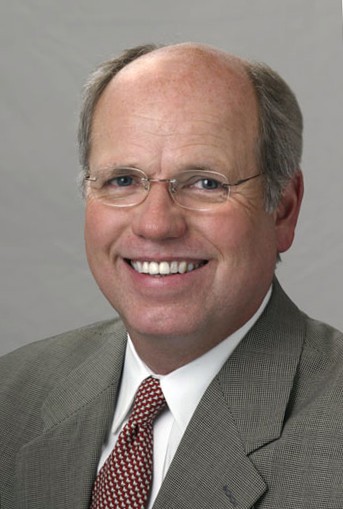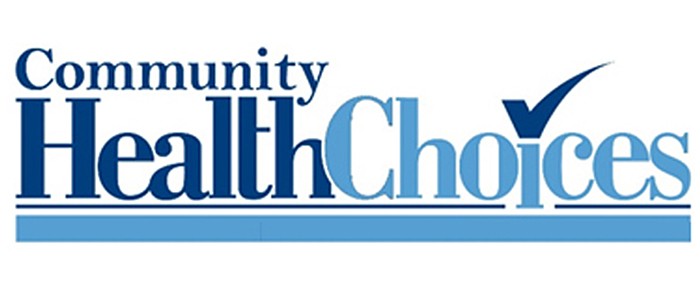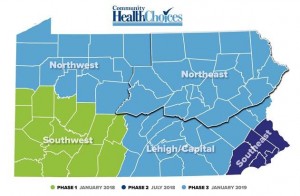PA to Operate Its Own Health Insurance Exchange
Capitolwire: Gov. Wolf signs into law bill allowing Pennsylvania to operate its own health insurance exchange, create reinsurance program.
By Alyssa Biederman
PLCA Intern
HARRISBURG (July 2) – Legislation hoping to make health insurance more accessible and less expensive for Pennsylvanians was signed into law on Tuesday by Gov. Tom Wolf.
“This bill is a huge step toward making health insurance affordable and effective for all Pennsylvanians,” said Wolf, indicating the hope is for the new law to make it so “everyone pays less.”
House Bill 3 was a bi-partisan effort to allow Pennsylvania to create its own state-run health insurance exchange, which will minimize Federal costs and allow the state to subsidize premiums.
HB3 prime sponsor and House Majority Leader Bryan Cutler, R-Lancaster, said healthcare is an issue for everyone, regardless of political party, that has to be solved.
“For too long people have been frustrated with healthcare,” Cutler, a former X-Ray technician, said. “Instead of focusing on making things better, we too often focus on what things cost.”
He added that the enactment of this bill — which will be effective for the Fall 2020 open enrollment and insurance coverage that begins Jan. 1, 2021 — will “significantly” decrease costs for Pennsylvania’s more than 400,000 private health insurance consumers that currently obtain their insurance from the federally-run exchange.
The bill will achieve this by transferring Pennsylvania’s existing health insurance exchange from federal to state control. Becoming state-run, Wolf said, will save money that will ultimately be used to decrease the amount health insurance consumers have to pay each month.
Pennsylvania has relied on the federal health insurance exchange since the implementation of 2010’s Affordable Care Act, also known as Obamacare. According to the Wolf administration, to cover costs, the federal government charges insurers a 3.5-percent fee on premiums paid by ACA enrollees each month, a projected $98 million for Pennsylvania insurers in 2019. This user fee is expected to be cut to 3 percent beginning in 2020, which would equate to approximately $88 million dollars from Pennsylvania insurers. Eliminating the need for insurers to pay that fee will allow for a redirection of that funding to help pay for a reinsurance program, which will allow insurers to price their products lower by limiting their exposure to very high, unpredictable medical expenses incurred by their members; the reinsurance program covers some of those expenses when they exceed a certain threshold.
Pennsylvania Insurance Commissioner Jessica Altman said she believes this change will incentivize more Pennsylvanians to apply for health insurance in the state.
Altman added that although the signing of the bill is a step forward, the state must continue to make health insurance more accessible.
“The passage of this legislation is analogous to registering for a marathon,” Altman said. “The race is still before us. We have a lot of training to do and roads to run before we reach the finish line.”
Cutler said he is confident that Pennsylvania’s four legislative caucuses will be able to keep passing legislation that will improve Pennsylvania’s health insurance landscape after seeing the collaboration that went into HB3. The bill passed unanimously in the House and Senate last week.
This plan was inspired by an executive order by President Donald Trump which provided states with more flexibility regarding the operation of their own health insurance exchanges.
“Regardless of how you feel about the status of things in Washington, D.C., we have a responsibility to govern here in Pennsylvania,” said Cutler. “That’s what this bill demonstrates better than anything else.”
Questions, please contact Jack Phillips.
Medicaid Change Affecting ~ 10,000 in Lancaster Co. Pushed Back a Year
RCPA Congratulates Ted Dallas on New Position with NHS
Ted Dallas, most recently Special Advisor to Governor Wolf and former Secretary of the Department of Human Services (DHS), joined RCPA member NHS, a leading provider of community-based, nonprofit education and human services, as Chief Operating Officer (COO) on March 12.
“Having worked with former Secretary Dallas over the years, we are confident that he will make an outstanding addition to the NHS team,” said RCPA President and CEO Richard Edley. “RCPA wishes Ted much success in his new role and we look forward to working with him and NHS to continue improving services to those living with disabilities in the Commonwealth.”
See the NHS press release here.
Opioid Crisis Spurs Medicaid Funds Push
Afraid of Falling? For Older Adults, the Dutch Have a Cure
Lawmakers Applaud Measure Creating Trust Fund for Youth Impacted by Prison System
RCPA COO/IDD Director Accepts Position With Leading Pittsburgh Provider
RCPA is proud to announce that one of its own will be heading to Pittsburgh to lead one of Pennsylvania’s most respected human service providers for people with intellectual and developmental disabilities. COO and IDD Division Director Steve Suroviec will be serving as CEO of ACHIEVA, Inc. starting in January 2018. Suroviec has been with RCPA since August 2016 after serving in multiple leadership positions in state government. RCPA President and CEO Richard Edley said, “We are very sad to see Steve leave RCPA – with the extensive knowledge and expertise he brought from the Offices of Developmental Programs and Vocational Rehabilitation, Steve shepherded our members through many months of reforms proposed by state funding agencies, including major changes to Medicaid waivers, funding regulations, and rates. But it’s a feather in RCPA’s cap that Steve has been asked to lead a strong and prestigious service provider such as ACHIEVA. This is a tremendous opportunity for him; we wish Steve all the best as he enters the next chapter of his career in service to people with disabilities.” Suroviec will continue at RCPA through the end of November to assist in the operations and in a transition. Read ACHIEVA’s press release and see the announcement in the Pittsburgh Business Times.
Community HealthChoices Information & Resources
The Department of Human Services (DHS) recently issued the following information and resources in preparation for the roll-out of Community HealthChoices (CHC) beginning January 2018 in the Southwest zone of the state.
Coming to the Southwest Zone in January 2018
The Department of Human Services (DHS) is committed to open and frequent communication to educate and inform individuals who will move to Community HealthChoices (CHC). It is critical that they are aware of the upcoming changes and are able to make an informed decision on their plan selection. We are using multiple channels to get the message out, and want to ensure that you are aware of upcoming information that potential participants will receive.
- INFORMATIONAL FLYER
Participants in the Southwest Zone received this flyer (also available in Spanish) in August 2017 to inform them that CHC was coming to their county in January 2018.
- CHC Community Meetings for Participants
Participants in the Southwest will receive an invitation to community meetings in late September.
There will be more than 40 events in the Southwest Zone, with at least one in each of the 14 impacted counties. The meetings will give more information about CHC, the LIFE program, and answer questions participants may have.
To register for a community meeting, participants can go to www.healthchoices.pa.gov or call 1-833-735-4416. A copy of the invitation is available here.
- Notices
DHS will mail notices to potential participants beginning today. The notice will inform participants that they will transition to CHC in January and will need to select a health plan, also called a managed care organization (MCO).
The notice also tells potentially eligible participants that they may be eligible for the LIFE program.
Copies of the notices are be available here.
- Pre-Enrollment Packets
Beginning on October 2, 2017, pre-enrollment packets will be mailed to participants. This packet will contain information about each of the health plans and the benefits offered by each plan, and tell participants how to enroll in a health plan. There will be a toll-free number and website for participants to use to make their selection. A day after the packets are mailed, automated calls will be made to let participants know that the packets are coming.
If participants do not select a health plan, they will get a follow-up call.
Individuals who do not select a plan by November 13, 2017, will be assigned to a plan. Individuals can change their plan at any time.
- Social Media
DHS’ Facebook, Twitter, and YouTube accounts make CHC information readily available. If you are not following us yet, please click the provided links to make sure you are receiving all up-to-date information on CHC and all department priorities.
(Map, Community HealthChoices Phases)
Help the Victims of Hurricane Harvey in Houston & Surrounding Areas
The members and staff of RCPA are looking for ways to reach out to the unfortunate victims of Hurricane Harvey. Below are some facts about this devastating event:
(Courtesy of the New York Times)
• The National Weather Service said Tuesday that Harvey has now set a record for total rainfall from a single tropical cyclone in the continental United States, with two weather stations in Texas reporting total rainfall over 48 inches.
- Local officials said there were 13 deaths in Texas so far that were storm-related or suspected to be storm-related. Officials in Houston confirmed on Tuesday afternoon that Sgt. Steve Perez, 60, died while driving to duty on Sunday.
- The Houston Police Department has rescued more than 3,500 people from flooding since the storm began, Chief Art Acevedo said on Tuesday, up from about 2,000 a day earlier. The city fire chief, Samuel Peña, said his department had performed more than 400 rescues. The Harris County Sheriff’s Office did not have an updated figure on Tuesday, but said it was considerably higher than the roughly 2,200 rescues it reported on Monday.
• President Trump is visiting Texas, having arrived in Corpus Christi before traveling to Austin, the state capital.
The American Red Cross is encouraging people to donate money on its website or to text 90999 to donate $10. The organization is also asking for volunteers. Other organizations include the Salvation Army, Samaritan’s Purse, and Heart to Heart International.
Please feel free to share this information as widely as possible. Thank you for being a part of these relief efforts.















